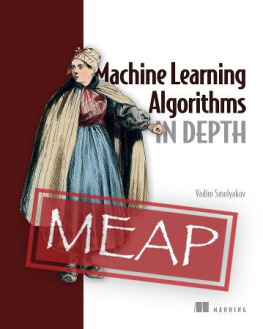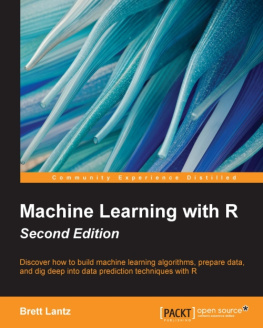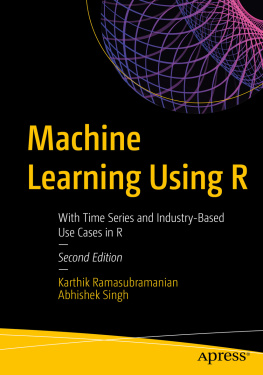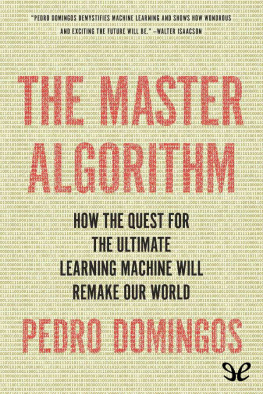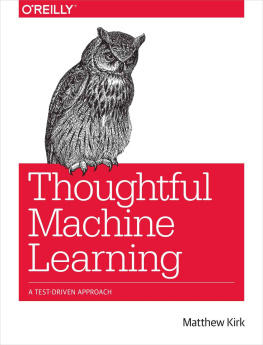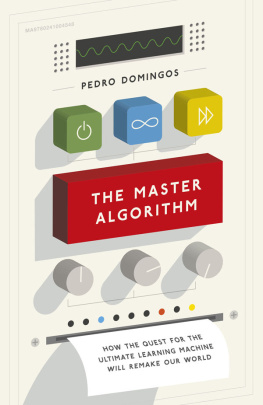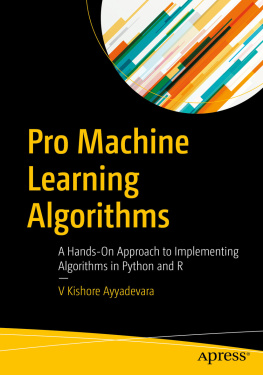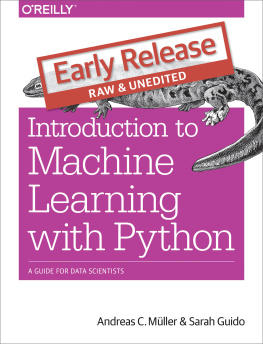More Advance Praise for The Master Algorithm
This is an incredibly important and useful book. Machine learning is already critical to your life and work, and will only become more so. Finally, Pedro Domingos has written about it in a clear and understandable fashion.
THOMAS H. DAVENPORT, distinguished professor, Babson College, and author of Competing on Analytics and Big Data at Work
Machine learning, known in commercial use as predictive analytics, is changing the world. This riveting, far-reaching, and inspiring book introduces the deep scientific concepts to even non-technical readers, and yet also satisfies experts with a fresh, profound perspective that reveals the most promising research directions. Its a rare gem indeed.
ERIC SIEGEL, founder, Predictive Analytics World, and author of Predictive Analytics
Machine learning is a fascinating world never before glimpsed by outsiders. Pedro Domingos initiates you to the mysterious languages spoken by its five tribes, and invites you to join in his plan to unite them, creating the most powerful technology our civilization has ever seen.
SEBASTIAN SEUNG, professor, Princeton, and author of Connectome
[An] enthusiastic but not dumbed-down introduction to machine learning... lucid and consistently informative.... With wit, vision, and scholarship, Domingos describes how these scientists are creating programs that allow a computer to teach itself. Readers... will discover fascinating insights.
Kirkus Reviews

Copyright 2015 by Pedro Domingos
Published by Basic Books,
A Member of the Perseus Books Group
All rights reserved. Printed in the United States of America. No part of this book may be reproduced in any manner whatsoever without written permission except in the case of brief quotations embodied in critical articles and reviews. For information, address Basic Books, 250 West 57th Street, New York, NY 10107.
Books published by Basic Books are available at special discounts for bulk purchases in the United States by corporations, institutions, and other organizations. For more information, please contact the Special Markets Department at the Perseus Books Group, 2300 Chestnut Street, Suite 200, Philadelphia, PA 19103, or call (800) 810-4145, ext. 5000, or e-mail .
Library of Congress Cataloging-in-Publication Data
Domingos, Pedro.
The master algorithm: how the quest for the ultimate learning machine will remake our world / Pedro Domingos.
pages cm
Includes index.
ISBN 978-0-465-06192-1 (ebook) 1. Knowledge representation (Information theory) 2. Artificial intelligenceSocial aspects. 3. Artificial intelligencePhilosophy. 4. Cognitive scienceMathematics. 5. Algorithms. I. Title.
Q387.D66 2015
00354dc23
2015007615
10 9 8 7 6 5 4 3 2 1
TO THE MEMORY OF MY SISTER RITA, WHO LOST HER BATTLE WITH CANCER WHILE I WAS WRITING THIS BOOK
The grand aim of science is to cover the greatest number of experimental facts by logical deduction from the smallest number of hypotheses or axioms.
Albert Einstein
Civilization advances by extending the number of important operations we can perform without thinking about them.
Alfred North Whitehead
Contents
You may not know it, but machine learning is all around you. When you type a query into a search engine, its how the engine figures out which results to show you (and which ads, as well). When you read your e-mail, you dont see most of the spam, because machine learning filtered it out. Go to Amazon.com to buy a book or Netflix to watch a video, and a machine-learning system helpfully recommends some you might like. Facebook uses machine learning to decide which updates to show you, and Twitter does the same for tweets. Whenever you use a computer, chances are machine learning is involved somewhere.
Traditionally, the only way to get a computer to do somethingfrom adding two numbers to flying an airplanewas to write down an algorithm explaining how, in painstaking detail. But machine-learning algorithms, also known as learners, are different: they figure it out on their own, by making inferences from data. And the more data they have, the better they get. Now we dont have to program computers; they program themselves.
Its not just in cyberspace, either: your whole day, from the moment you wake up to the moment you fall asleep, is suffused with machine learning.
Your clock radio goes off at 7:00 a.m. Its playing a song you havent heard before, but you really like it. Courtesy of Pandora, its been learning your tastes in music, like your own personal radio jock. Perhaps the song itself was produced with the help of machine learning. You eat breakfast and read the morning paper. It came off the printing press a few hours earlier, the printing process carefully adjusted to avoid streaking using a learning algorithm. The temperature in your house is just right, and your electricity bill noticeably down, since you installed a Nest learning thermostat.
As you drive to work, your car continually adjusts fuel injection and exhaust recirculation to get the best gas mileage. You use Inrix, a traffic prediction system, to shorten your rush-hour commute, not to mention lowering your stress level. At work, machine learning helps you combat information overload. You use a data cube to summarize masses of data, look at it from every angle, and drill down on the most important bits. You have a decision to make: Will layout A or B bring more business to your website? A web-learning system tries both out and reports back. You need to check out a potential suppliers website, but its in a foreign language. No problem: Google automatically translates it for you. Your e-mail conveniently sorts itself into folders, leaving only the most important messages in the inbox. Your word processor checks your grammar and spelling. You find a flight for an upcoming trip, but hold off on buying the ticket because Bing Travel predicts its price will go down soon. Without realizing it, you accomplish a lot more, hour by hour, than you would without the help of machine learning.
During a break you check on your mutual funds. Most of them use learning algorithms to help pick stocks, and one of them is completely run by a learning system. At lunchtime you walk down the street, smart phone in hand, looking for a place to eat. Yelps learning system helps you find it. Your cell phone is chock-full of learning algorithms. Theyre hard at work correcting your typos, understanding your spoken commands, reducing transmission errors, recognizing bar codes, and much else. Your phone can even anticipate what youre going to do next and advise you accordingly. For example, as youre finishing lunch, it discreetly alerts you that your afternoon meeting with an out-of-town visitor will have to start late because her flight has been delayed.
Next page

